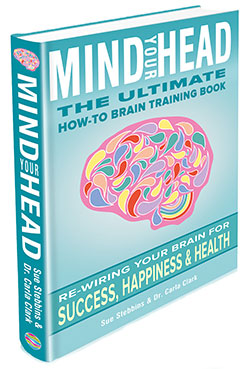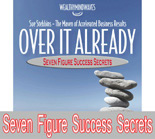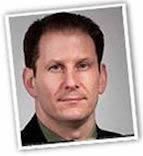True to Our Feelings: What Our Emotions Are Really Telling Us
Robert C. Solomon
Reviewed by Ronnie de Sousa, University of Toronto
Source: http://ndpr.nd.edu/review.cfm?id=11343
Solomon saw that there is another crucial element which makes human love different from animal affection. One thing I am able to bestow is my attention. And to the extent that the qualities I attend to cause my love, my reflection on those qualities constitutes them as reasons:
Once there is a gap between having an emotion and naming that emotion, there is room for a very special kind of error. In reflection, we can be mistaken about our emotion as well as in our emotional response. . . we can also . . . decide that what we do feel is correct and what we think we 'ought' to feel is mistaken. (121)
That, it seems to me, is a deep insight about the nature of reasons in love, and indeed into the peculiarly human quality of human emotion, linked to the human faculty of reflection rooted in language.
When love fails, gratitude is sometimes "the next best thing." By thinking of all the ways in which one is indebted, we can systematically coax ourselves into gratitude more easily, at any rate, than into love. And yet, in one of those subtle reversals to which many emotions are prone, that strategy can sometimes induce resentment instead. On Nietzsche's view, Solomon observes, resentment is the emotion of the weak: "Where envy sees itself in an inferior position, not having what it really wants and unable to get it, resentment rationalizes this inferiority as oppression, and in so doing grants to itself a kind of moral superiority." (109) And being in someone's debt could be rationalized as a kind of inferiority, leading to resentment -- a kind of dual of gratitude. Merely attending to what one owes to another does not determine the valence of one's response.
The last couple of pages of True to Our Feelings are devoted to a eulogy of gratitude. Here too, he brings up a paradox, citing Nietzsche's exclamation, "How could I fail to be grateful to my whole life?" which raises the question
to whom one should feel this gratitude. As an emotion, gratitude is defined, at least in part, by its "object" namely the reception of a gift of some kind. . . . If a good friend gives me a book, I am . . . grateful to him. . . . But if spirituality need not include a belief in a personal God, then how can one be grateful for one's life and all its blessings? (269)
In reply, Solomon urges a dissociation of the emotion of gratitude from any target at all. I think that is essentially right. But out of characteristic kindness, he refrains from making the case against the sort of gratitude he attributes to "most Christians, Jews, Hindus and Muslims." (270) Perhaps out of respect for what is commendable about the religious sensibility, he misses a chance to show that there is something deeply wrong with gratitude to a higher power.
For my part, having long passed the age at which most human beings who have ever lived are dead, I feel gratitude every day for being alive. But if I thought some God was to be thanked for that, as opposed to brute luck, I'd worry about the gross unfairness of it. Why should God privilege me, while condemning millions of innocent people to early and often horrible deaths? Religious gratitude seems to me deeply deplorable, in a way epitomized by the survivor of a plane crash who, while being interviewed by a TV crew, exclaimed "Now I really know that God exists -- because he saved me!" In the event, about half of the other passengers had died. That lucky man seemed untroubled by the question: Why should I be spared when so many are not? He must suppose that he merits the special attention of the Creator of the Universe -- a sentiment that in the guise of humility evinces heights of arrogance beyond Satanic pride. Or else he must assume that God's grace is indeed, as some theologies seem to proclaim, entirely arbitrary. To which the proper response is not gratitude but embarrassment and shame.
Feeling lucky, by contrast, does not manifest the same megalomaniac egotism. Since no one is responsible for my good fortune, there is no one to blame for its unfairness. The paradox, then, is that in "feeling grateful for being alive", the emotion I experience certainly seems to have the structure of a familiar emotion, requiring an intentional agent as its target; yet it avoids deserving shame or disgust only if that agent target is absent.
That is not, of course, the only paradox about our attitude to luck. I have sometimes caught myself thinking: "Solomon was lucky to die in the flower of his age, enjoying the height of his intellectual powers." But wouldn't he have been a lot luckier if he had enjoyed them for a few decades longer? The logic of luck is funny like that. We contextualize the event under consideration in a way that takes account of a change in baseline, and what we regard as a baseline is determined by unexpected events that have dislocated the previous baseline.
What, then, might the appropriate baseline be? The Euthyphro dilemma arises in connection with the baseline of luck, no less than it does about love or the pious. Is the baseline in terms of which we regard ourselves as lucky or unlucky an objective one, which justifies our attitude? Or is it merely a projection of that attitude itself? There is an element of luck in the very fact that we are able to take this view of our situation rather than that. Against Solomon's uncompromising emphasis on responsibility, it might be claimed that essential luck is involved in the very fact of being able to take ourselves to be responsible.
Among the many ways in which Solomon personally influenced many lives for the better is his injunction, in this book and throughout his life, that people should assume responsibility for themselves. Many readers of this book, suddenly awakened to their own freedom, may do just that. But how lucky for them that Solomon was there to make them see it. And how unlucky for all of us that he can no longer do so in person.
.
We Make it Easy to Succeed
Successwaves, Intl.
Brain Based Accelerated Success Audios
 |






